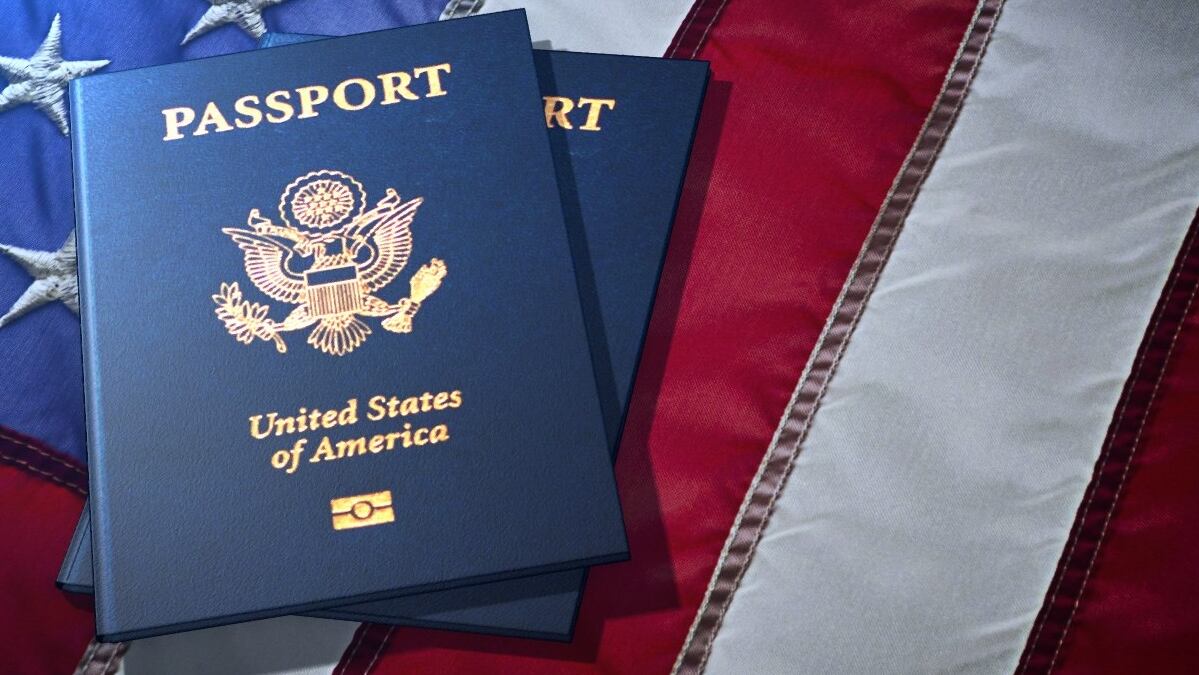What transgender travelers can do after anti-trans executive orders
ATLANTA, Ga. (Atlanta News First) - One of President Donald Trump’s first executive orders after he won back the White House sent shock and fear throughout the transgender, non-binary and intersex community.
The order declares that the United States federal government only recognizes two sexes, male and female. The order also declares that sex is “not changeable.”
Ga. lawsuit targets ‘gender dysphoria’ clause in disability law
Georgia is one of 16 states challenging a Biden-era change to federal disability law.

Carl Charles, senior attorney at Lambda Legal, called the order “terrifying in its absurdity and absurd in how terrifying it is.”
“It’s stunning for a lot of us to see the hateful, targeted language of these executive orders,” he said.
Trans activist Rose Montoya said, “It’s scary to have our rights be threatened.”
What does the order do?
The order does very little on its own. Executive orders are not laws.
It is, instead, a series of directives. One of those directives orders the State Department to ensure identification documents such as ports and visas comply with the executive order.
Secretary of State Marco Rubio issued a memo halting the processing of port applications seeking gender marker changes. The State Department has also scrubbed any explicit reference to transgender people from its websites.
“We’ve heard many reports that (the memo) is being carried out. That directive was then conveyed to port offices across the country and trans, non-binary and intersex people have not been able to access either ports with X gender markers or their applications to update their gender marker have been put on hold,” Charles said.
Charles said they likely won’t be the only actions the State Department takes, but there’s no guarantee they will stick either.
“It still remains to be seen what actions (the State Department) will actually undertake,” Charles said. “There’s all these procedural things that are put in place to prevent the abuse of executive power that we’re seeing right now.”
Ga. Senate es bill targeting transgender care for public workers
Georgia’s Senate ed a bill that would cut off public funding for gender-affirming care for adults, but the future of the legislation remains uncertain.

Wait, isn’t that illegal?
The order doesn’t coincide with previous judicial decisions.
In 2018, the District Court for the District of Colorado ruled that the State Department had to issue a port to an intersex individual who wanted an “X” on their port.
In the ruling, Judge R. Brooke Jackson called the State Department’s binary gender policy “requiring an intersex person to misrepresent their sex on this identity document is a perplexing way to serve the Department’s goal of accuracy and integrity.”
Gender was not a required field on U.S. ports until 1976.
On Feb. 7, the American Civil Liberties Union announced it was suing to block the order.
As a trans person, why should I have a port?
Transgender people have the same right to international travel as anyone else.
Los Angeles-based activist Rose Montoya, who has a website dedicated to helping other trans people update their documents, said people can travel outside the U.S. for leisure, but also for safety.
“I think that that bar (for leaving the U.S.) is very personal,” Montoya said.
ACLU fights anti-transgender order after Ga. lawmakers bill
The American Civil Liberties Union (ACLU) announced Friday it would sue the Trump istration over an executive order halting the processing of gender marker changes on ports.

As a trans person, should I be freaking out?
“I think a lot of what was in the executive order was intended to shock and awe and scare people and create panic,” Charles said. “It was effective.”
It doesn’t take a deep dive into transgender communities to find out that many trans people are scared.
“It’s been really disheartening,” Montoya said. “I’ve received dozens and dozens of messages from friends, family and strangers alike who are trans who are scared. Their fear is so valid. It is scary to have our rights be threatened. It is scary to think about a reality where we do not have federal recognition.”
Montoya stressed that the executive order is not a full travel ban.
“Trans people in America can get a port,” she said. “You may not be able to get your gender marker corrected if you have an application for a new port or especially a renewal, unless you’re applying for a first-time port and you’ve corrected your birth certificate and ing documents.
Montoya would recommend against trying to update your gender marker at this point if you’ve had a port previously.
“It could be overturned any day, so I think that’s the piece of hope to ,” she said. “The second that a federal judge overturns this order and you’re able to update your documents, do it.”
Montoya said that if you’ve never had a port and have fully updated documents like driver’s licenses and birth certificates, you can get a port.
“They don’t have any records of a previous port being issued with a different gender, so they have no reason to deny it,” she said.
Georgia lawmakers vote to anti-transgender sports bill
Ga. Senate advanced a bill that would prevent K-12 and college students from competing in sports designated for the opposite sex.

Can I still change my name?
The order doesn’t affect your ability to get state documents like driver’s licenses and birth certificates updated with names and gender markers. Getting these documents can help you in certain situations.
After May 7, you’ll need a REAL ID to fly domestically if you don’t have a valid port. In Georgia, every permanent ID issued after 2012 is a REAL ID.
How do I do that?
The process for changing your name in Georgia happens at the county level.
Sally Fox, Esq., a volunteer with Atlanta Legal Aid, said the process is easier in some counties than others, especially rural counties.
Finding a lawyer who specializes in these cases can make things much easier. There are organizations such as Atlanta Legal Aid and Stonewall Bar Association who can help.
You’ll need to go to your county clerk’s website and find the requisite forms, generally a Petition for Name Change, Verification of Petitioner, Notice of Petition and Case Initiation Form.
You need both a reason for a name change and a sworn statement that the name change isn’t intended to commit fraud.
“In general, what we put in name change petitions is ‘this is the name that I’m known by,” Fox said.
Under Georgia law, a judge cannot deny a name change unless there is evidence of fraud.
In 2018, a judge tried to deny name changes for two transgender people on the basis that the name changes themselves were a form of fraud, but that was struck down.
“You are not harming anyone by changing your name and Georgia law s that under (these) appellate decisions,” Fox said.
Once the case is filed, the notice must be published in the county’s legal newspaper. Fulton County’s newspaper is the South Fulton Neighbor.
Once that is complete, the publisher should give you an affidavit confirming that the notice was published.
Make copies of the forms because you’ll need them when you finally appear in front of a judge. If the judge approves your request, you’ll receive a certified copy of the court order.
Once the name change is confirmed, you can then get it changed on documents like your license, ID and birth certificate.
You’ll need the certified copy when updating your ID and birth certificate.
To get your gender marker changed, you need a “qualifying medical procedure” and a letter from a doctor.
Fox said you should talk to a lawyer before getting a letter from a doctor.
“Sometimes the people who write the rules aren’t as aware of the options and the science that’s involved,” Fox said. “We wanna make sure that the doctor has crafted the letter in the right way so that we don’t run into any problems.”
Both the name change and gender marker change can be filed in the same case, and much of the paperwork can be filed online.
Copyright 2025 WRDW/WAGT. All rights reserved.













